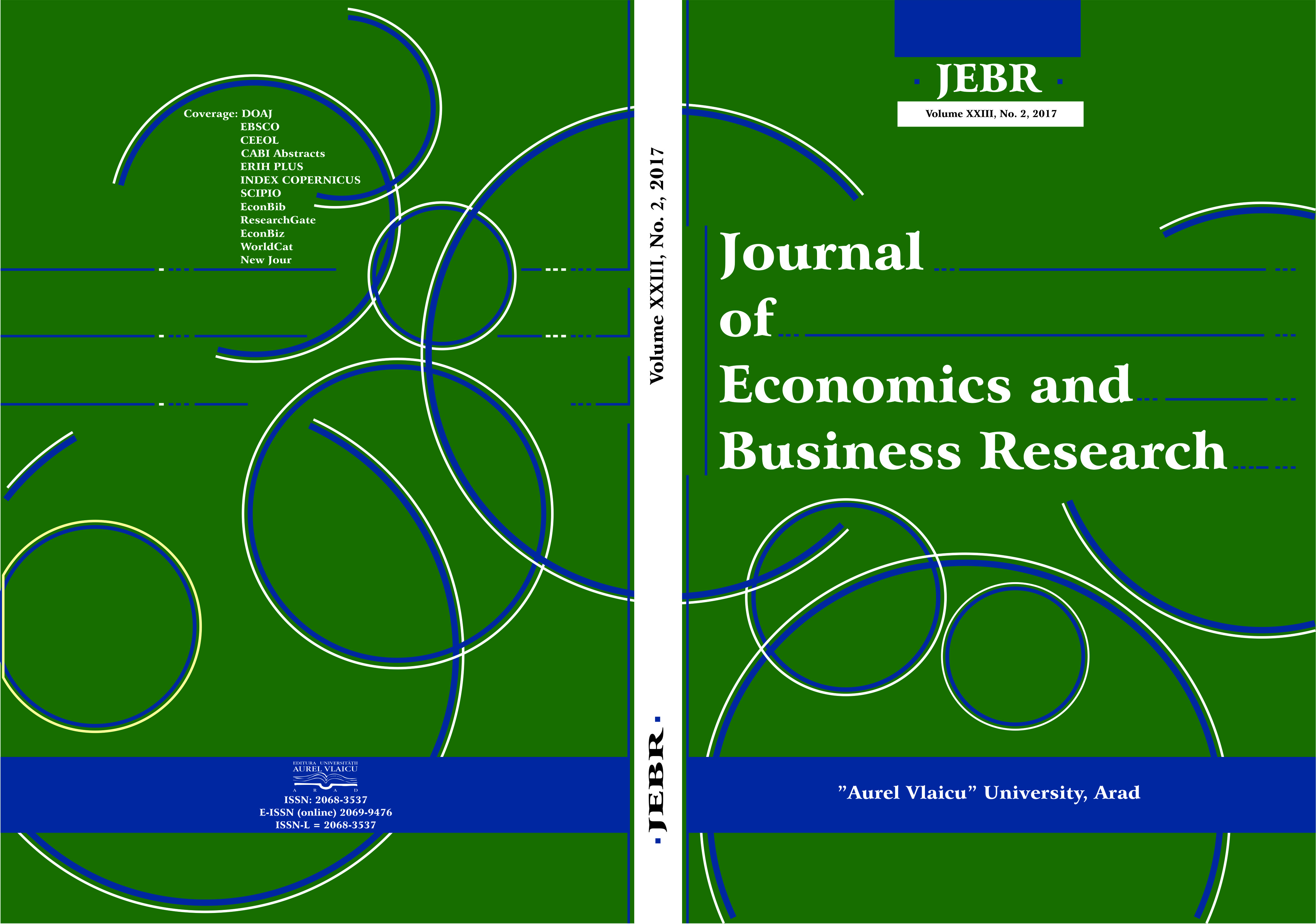Effect of Budget Deficit on Exchange Rate in Nigeria from 1980 to 2017: An Error Correction Model Approach
Effect of Budget Deficit on Exchange Rate in Nigeria from 1980 to 2017: An Error Correction Model Approach
Author(s): Ephraim Ikechukwu Ugwu, Olubunmi EfuntadeSubject(s): Economy, Financial Markets, Public Finances
Published by: Editura Universității Aurel Vlaicu
Keywords: Budget deficit; exchange rate; unit root; cointegration; ECM; Nigeria;
Summary/Abstract: This study examines the effect of budget deficit on exchange rate in Nigeria using a time series data from 1980 to 2017. The study employs an Error Correction Model Approach (ECM) for evaluation. The stationarity test result shows that all the variables are stationary and integrated of order one at 5% level of significance. The Johansen hypothesized cointegration test result show that the trace likelihood ratio and the maximum Eigen value results point out that the null hypothesis of no cointegration among the variables is rejected in favor of the alternative hypothesis up to five cointegrating equations at 5% significant level respectively. The long run analysis of the effect of the budget deficit on the exchange rate performance reveal that the coefficient of the variables, DEFICIT_1, LOG (M2) and OPEN show positive signs. The coefficient of the variables INF, DEEP and LOG (CONSUM) indicate negative signs. The equilibrium Error-Correction Model result has the expected negative sign and is statistically significant. The Pairwise Granger Causality test result shows that there is a unidirection of causality from EXCHR to DEFICIT_1. The study therefore recommends that the Federal Government should adopt policy that encourages foreign capital inflow in order to boost the country’s productive base
Journal: Journal of Economics and Business Research
- Issue Year: XXIII/2017
- Issue No: 2
- Page Range: 193-216
- Page Count: 24
- Language: English

